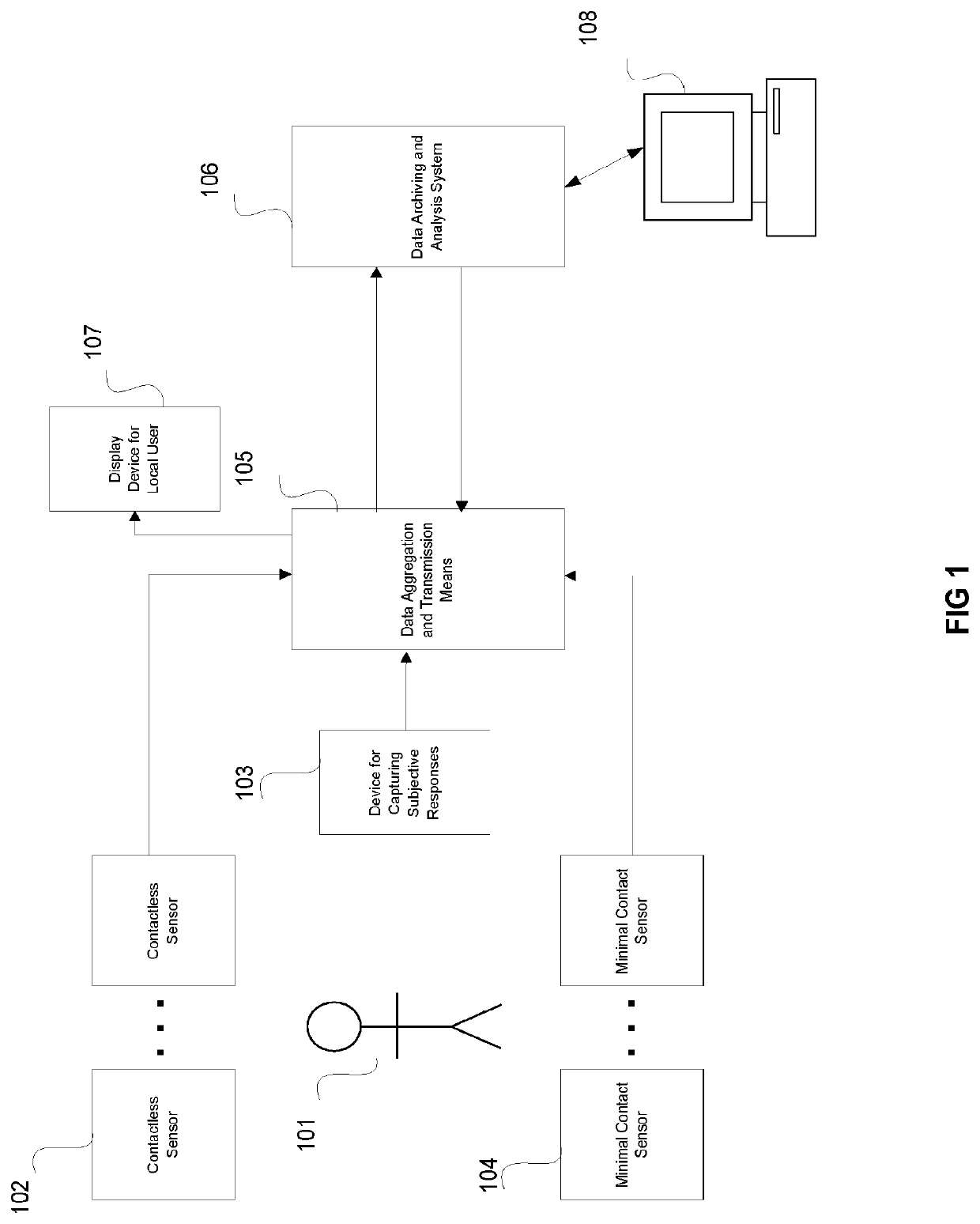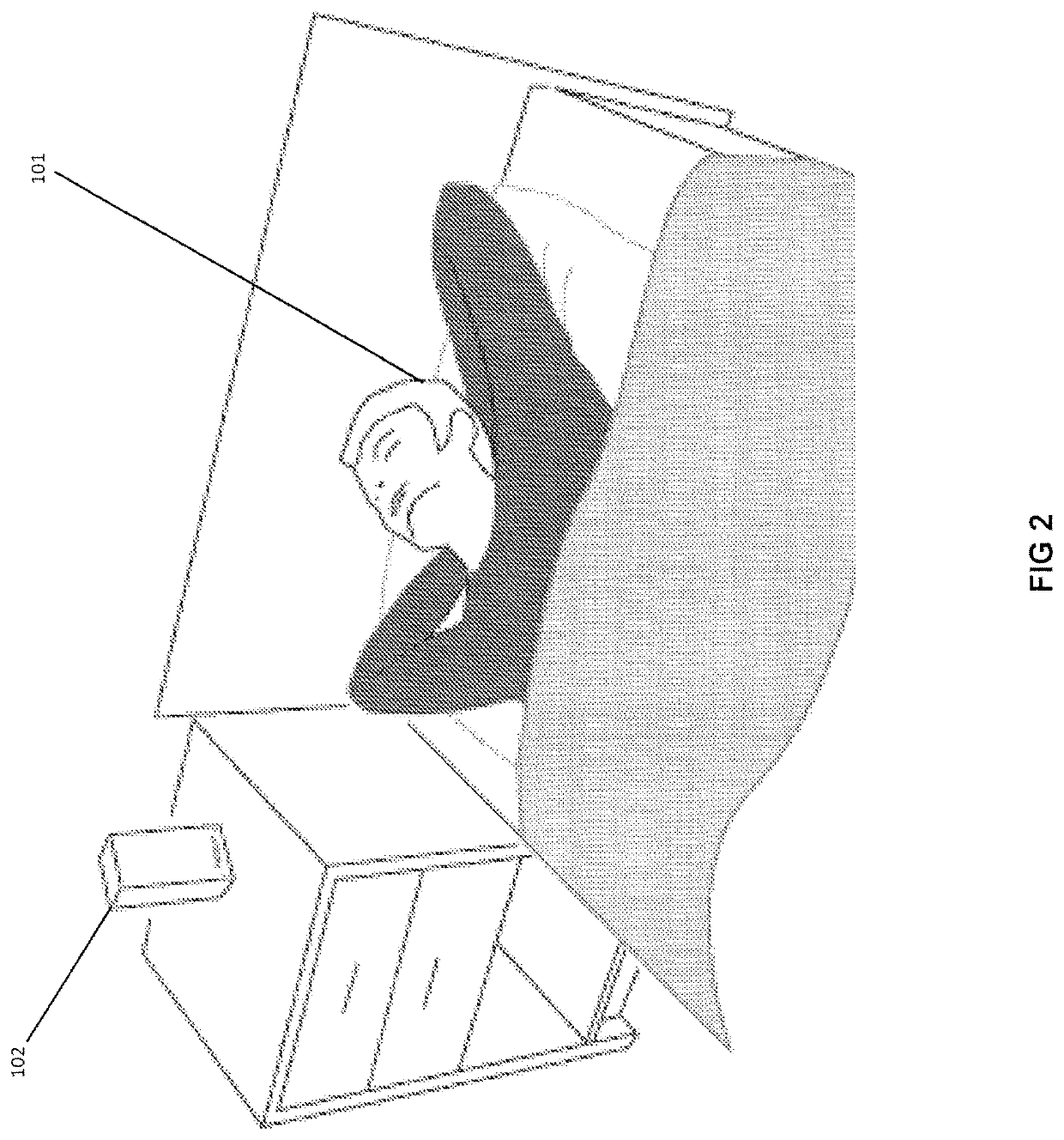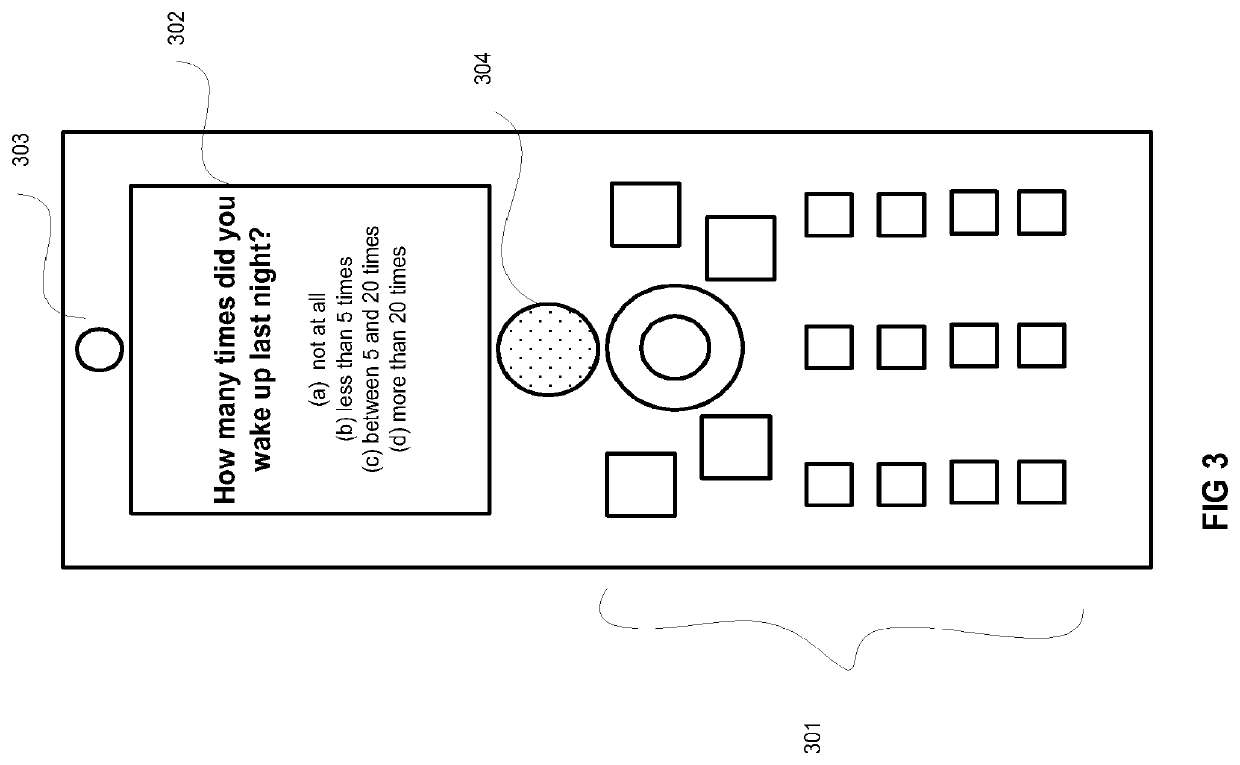Systems and methods for monitoring quality of life parameters using non-contact sensors
a technology of non-contact sensors and quality of life, applied in the field of systems and methods for monitoring quality of life parameters using non-contact sensors, can solve the problems of logistical and financial challenges of measuring parameters, difficult to measure qol, and difficult to define sleep quality as it relates to quality of life, etc., and achieve the effect of improving quality-of-life parameters
- Summary
- Abstract
- Description
- Claims
- Application Information
AI Technical Summary
Benefits of technology
Problems solved by technology
Method used
Image
Examples
Embodiment Construction
[0030]FIG. 1 is a diagram illustrating an overall schematic of an embodiment of this disclosure. Monitored subject 101 may be observed by a plurality of contactless 102 and minimal contact sensors 103. Subject 101 may also has access to input device 104 capable of obtaining subjective feedback from the subject through written text or recorded sound. Data aggregation and transmission device 105 collects the data from the sensors 102, 103 and 104, and may also control data sampling and input parameters used by the various sensors and devices. Optionally, display / feedback device 107 can be provided to the local user (e.g., this might indicate whether a signal is being collected from them, or give feedback on the most recent set of QOL parameters measured). Data aggregation and transmission device 105 may be configured to communicate in a bilateral way with remote data archiving and analysis system 106. Data archiving and analysis system 106 may store data from a plurality of subjects, ...
PUM
 Login to View More
Login to View More Abstract
Description
Claims
Application Information
 Login to View More
Login to View More - R&D
- Intellectual Property
- Life Sciences
- Materials
- Tech Scout
- Unparalleled Data Quality
- Higher Quality Content
- 60% Fewer Hallucinations
Browse by: Latest US Patents, China's latest patents, Technical Efficacy Thesaurus, Application Domain, Technology Topic, Popular Technical Reports.
© 2025 PatSnap. All rights reserved.Legal|Privacy policy|Modern Slavery Act Transparency Statement|Sitemap|About US| Contact US: help@patsnap.com



